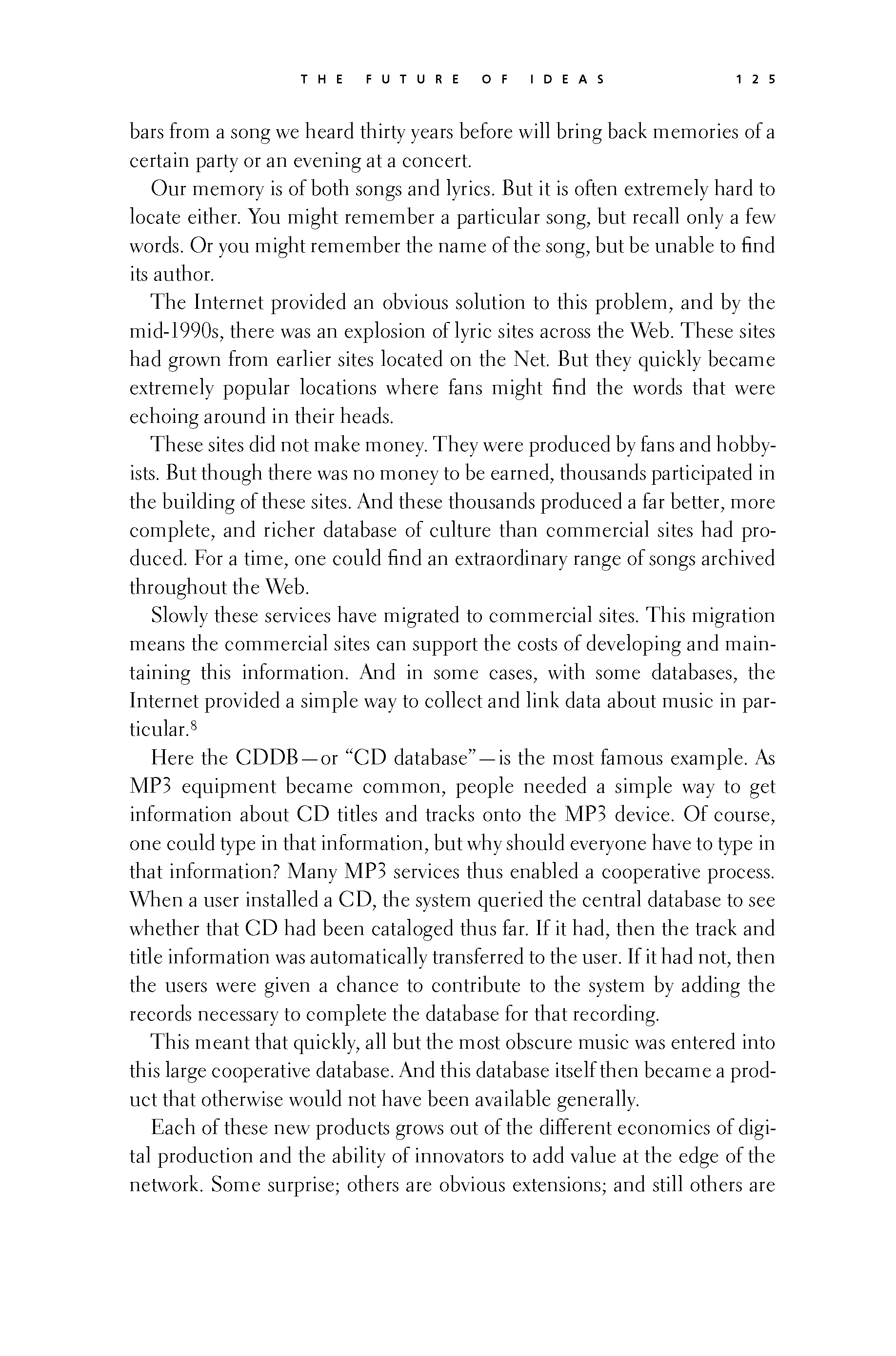 p124 _
-chap- _
toc-1 _
p125w _
toc-2 _
+chap+ _
p126
p124 _
-chap- _
toc-1 _
p125w _
toc-2 _
+chap+ _
p126
bars from a song we heard thirty years before will bring back memories of a
certain party or an evening at a concert.
Our memory is of both songs and lyrics. But it is often extremely hard to
locate either. You might remember a particular song, but recall only a few
words. Or you might remember the name of the song, but be unable to find
its author.
The Internet provided an obvious solution to this problem, and by the
mid-1990s, there was an explosion of lyric sites across the Web. These sites
had grown from earlier sites located on the Net. But they quickly became
extremely popular locations where fans might find the words that were
echoing around in their heads.
These sites did not make money. They were produced by fans and hobby-
ists. But though there was no money to be earned, thousands participated in
the building of these sites. And these thousands produced a far better, more
complete, and richer database of culture than commercial sites had pro-
duced. For a time, one could find an extraordinary range of songs archived
throughout the Web.
Slowly these services have migrated to commercial sites. This migration
means the commercial sites can support the costs of developing and main-
taining this information. And in some cases, with some databases, the
Internet provided a simple way to collect and link data about music in par-
ticular.[8-8]
Here the CDDB -- or "CD database" -- is the most famous example. As
MP3 equipment became common, people needed a simple way to get
information about CD titles and tracks onto the MP3 device. Of course,
one could type in that information, but why should everyone have to type in
that information? Many MP3 services thus enabled a cooperative process.
When a user installed a CD, the system queried the central database to see
whether that CD had been cataloged thus far. If it had, then the track and
title information was automatically transferred to the user. If it had not, then
the users were given a chance to contribute to the system by adding the
records necessary to complete the database for that recording.
This meant that quickly, all but the most obscure music was entered into
this large cooperative database. And this database itself then became a prod-
uct that otherwise would not have been available generally.
Each of these new products grows out of the different economics of digi-
tal production and the ability of innovators to add value at the edge of the
network. Some surprise; others are obvious extensions; and still others are
[[125]]
p124 _
-chap- _
toc-1 _
p125w _
toc-2 _
+chap+ _
p126